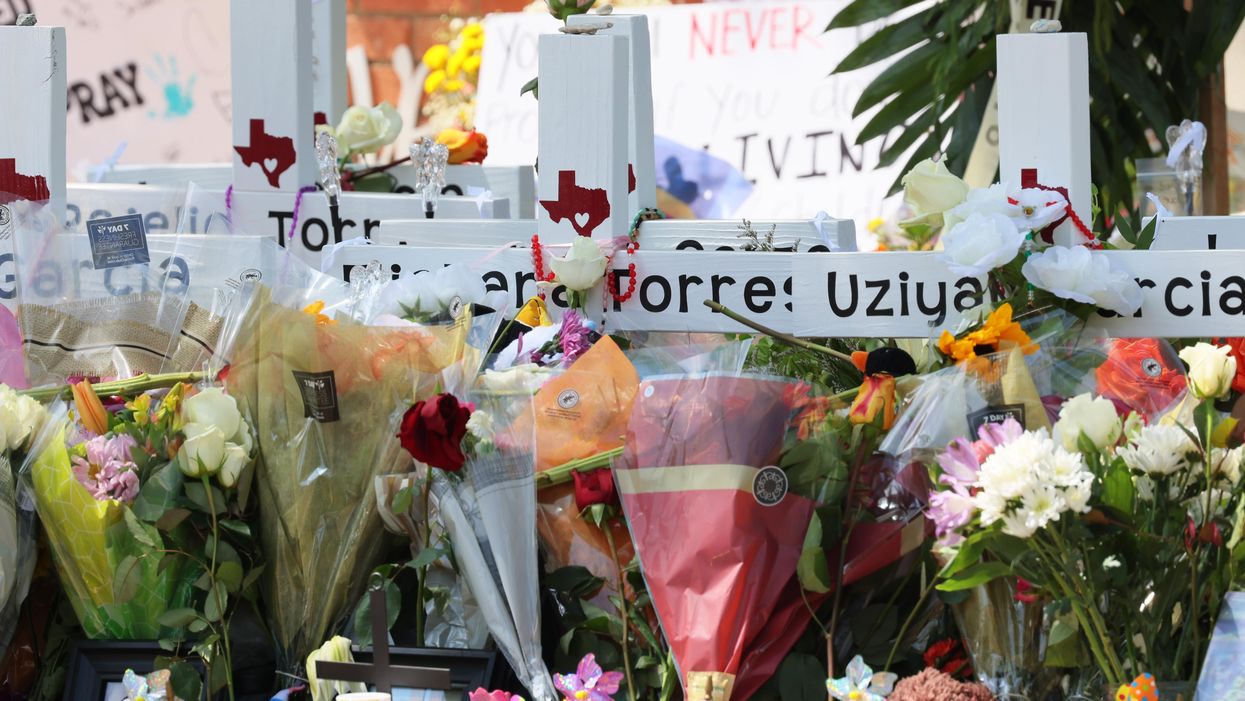Paterno, a former quarterbacks coach for Penn State University, ran for lieutenant governor of Pennsylvania in 2014 and consults on a variety of issues.
Wednesday morning in Happy Valley, through the open windows of my home office, I heard the chirping of a cardinal at the bird feeder, the voices of children walking to the neighborhood elementary school and the sound of a school bus slowing to a halt. Up and down the street mothers or fathers stood at the bus stop, holding a small child’s hand.
The simple things that happen every day in America are among the best. The excitement that comes with the new hope that rises with each day’s dawn.
But Wednesday morning we woke from another national nightmare, just days after another national nightmare that was just days after another national nightmare. No place is safe from America’s violent terror cycle that strikes homes, schools, stores, movie theaters, street corners and houses of worship.
And each time these mass shootings happen, opposing parties line up and fight with one side obstinately defending the status quo and the other looking to make sense of what happened, trying to lessen the violence in this country. Not much happens.
If we are to become the exceptional nation we claim to be, at some point, when more blood is spilled and more children are lowered into the ground, we have to act to correct a hard truth. From homicides to suicides, in cities and towns all over America, guns take the lives of too many children and adults every day.
The grief becomes frustration, and we are left to ask: “What is the soul of America?”
We are soldiers storming the beaches of Normandy. We are firefighters running into the twin towers on 9/11 to save others. We are the woman in Buffalo shopping every Saturday for food she took to a food pantry for others. We are the countless unseen simple acts of generosity, kindness and courage done for our fellow human beings.
We can proudly put the best of this country against the best of any other country.
But we are also a nation where a heavily armed 18-year-old man can walk into a store or a school holding the too-easily-obtained power to violently end the lives of others. We are a nation where some preach hatred and baseless theories to scare and intimidate people. We are a nation where many feel isolated and alone. We are a nation where charlatans twist religion and yell from the pulpit to cast condemnation on others who do not look or love or worship the way they deem acceptable. We are a nation founded in freedom’s cause that allowed slavery and a constitution that counted some people as fractional human beings.
So, dispense with the lecture about the founders’ infallibility. Like the Bible and nearly every religious text, the Constitution has passages we can pull to justify pretty much anything we want.
It is neither politically expedient nor acceptable to admit that our history and our soul are complex. In fact, some would have us erase our complexities from the history we teach our children. The truth is rarely ever wildly popular among all people. But the fact remains that by the very nature of our humanity, we are imperfect.
Are we so arrogant as to believe that, we, of all people who’ve lived across the ages, somehow we have slipped the bonds of human imperfection that many far wiser could not escape?
If we are honest as Americans, we must accept that part of our soul is violent. Part of us has always believed that might makes right. The source of that might has often been the weaponry of war, weaponry that is readily accessible to the best and worst of us.
At our best, the eloquence and leadership of great leaders repeatedly moved our nation towards a more perfect union. They pointed the way towards our ideals. But to move towards a more perfect union, to solve the violence in America, the bully and the bullet must not be mightier than the voices of millions calling for a more just nation. The money and power of entrenched interests must not destroy the dreams and rights of life, liberty and the pursuit of happiness.
Tuesday in a small corner of Texas, the inalienable human rights and dreams of children still new on their life’s journey were shattered. The best of our soul met the worst of our soul, and the worst marked those families, that community and our nation once again. Sadly, the most basic rights of children and people are taken by violence every day in America.
The time for rhetoric has passed. The time of politicians and lobbyists awash in money staking out intractable and uncompromising extreme positions to remain in power must end. Because, so too, the blood sport of power-play politics is part of our soul.
And sadly, so too are the anguished families waiting late into the night in Uvalde, Texas, clinging to the fading hope that their child would come home. Our soul includes the people who survived that carnage, their lives, minds and dreams forever changed. The most horrific end to a day had come to a place and a day that probably began much like the day of hope right outside my window.
The cries of their pain, the pain of their loss must shake our collective soul. If once again we can ignore the pain of unspeakable loss, what does that say about us?
The hard question persists. Even harder answers must emerge.




















Trump & Hegseth gave Mark Kelly a huge 2028 gift